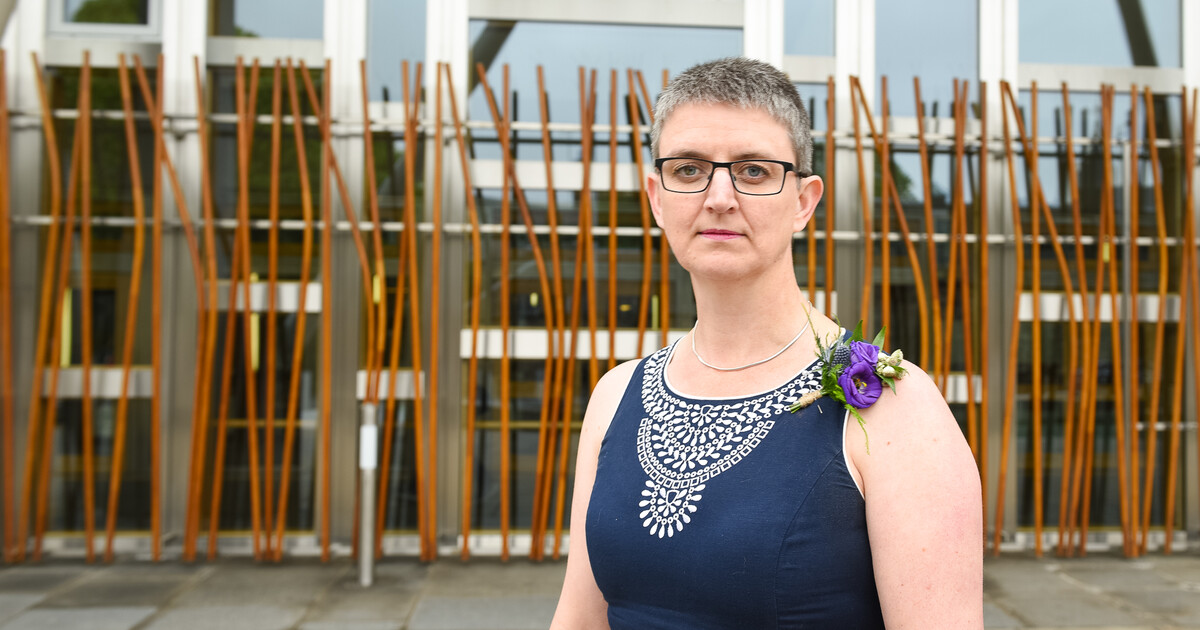Misogyny is a stain

A speech by Maggie Chapman MSP as part of a Parliamentary debate on Reforming Criminal Law to Address Misogyny.
And I want to thank the Cabinet Secretary for the conversations we have had about the work of the Misogyny Working Group and the consultation on the proposed legislation that opened yesterday – I am grateful to him for his openness in these discussions, and for his approach to and desire for unity in this debate this afternoon.
And I am grateful to Helena Kennedy and all those involved in the detailed, difficult yet important work that the Working Group undertook that allows us to be here today, discussing how we can tackle what is a stain on our society.
Because that society – the society we live in – is structurally misogynistic.
Women have experienced that throughout our lives, in ways that might seem trivial and ways that are clearly, revoltingly, intolerable. But all of those ways, all of those experiences, as every woman in this chamber knows, leave scars. Perhaps scars that, after decades, we are still not ready fully to face.
As Scottish Women’s Aid has said, and I quote “Women’s and girls’ experiences of violence and abuse cross private and public spaces and are a cause and consequence of women’s inequality”.
Just this week, in Tuesday’s debate about the safety of women and girls on public transport, we heard about what happens in some of those public spaces. Story after story came, bitter testimony of the everyday misogyny intended to keep us, sometimes literally, in our place.
Our mothers might have hoped it would be better by now. And in some ways it is. There is a greater understanding, among both women and men, girls and boys, of gender work, pay, and representation issues, of the realities of patriarchy, and of the potential for liberation in diversity and identity beyond the binary.
But at the same time, as the First Minister highlighted yesterday in her speech for International Women’s Day, new technologies and communication platforms open new spaces and channels for misogynistic abuse, especially of young women and girls. And there are chilling counter-movements preying on the vulnerable, movements of hard reaction that don’t simply employ misogyny but centre it as the very core of their ideology.
We don’t pretend we’re going to change that overnight. But change, active resistance, is essential. Helena Kennedy has written of this problem as one of ‘social proof’, conduct that is increasingly mimicked until it becomes a widespread norm. We cannot wait until that norm is ubiquitous. We must look not only at where we are, but at where, without a change in direction, our society is heading.
And we’re not doing this only for women and girls. Misogyny isn’t good for men. It’s no liberation to be forced into navigating constant pressures to express or condone attitudes of hate. And for men who, for whatever reason, don’t visibly comply with macho stereotypes, it can be especially painful and dangerous.
For misogyny is deeply intertwined, not with healthy and confident identity, but with other defensive and fearful forms of discrimination, oppression and hate, including racism, homophobia and transphobia. That’s why the attempt to co-opt the concept of misogyny as an insult against trans inclusive feminists is both pathetically misguided and ludicrously ironic.
For misogyny is foundationally connected to other patriarchal systems of violent and coercive control. Those include sexual violence and domestic abuse, but also conservative strategies of education and healthcare denial, not least denial of reproductive rights. It’s important to be conscious of that wider picture as we face, as I’m sure we will face, some quite virulent opposition to the report’s recommendations.
For today’s debate is an important milestone in a journey that I hope and trust will result in real and significant change in our law. Such change will resonate not just through Scotland but far beyond, showing what is possible for a Parliament that takes equality seriously.
I look forward to working with my fellow MSPs and civil society, to make that legislation the best it can possibly be: normalising a culture of respect and dignity; protecting the rights and enhancing the wellbeing of all women, both cis and trans; gaining widespread support among all genders; communicated and understood as both a symbol of, and a tool for, a healthier, a safer and a happier Scotland.
